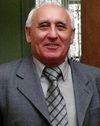References
- Bespal’ko V. P. Components of pedagogical technology. Moscow, 1989. 192 p. (In Russ.)
- Zagvyazinskii V. I. Research activities of the teacher. Moscow, 2010. 173 p. (In Russ.)
- Rementsov A. N. Dopolnitel’naya dovuzovskaya podgotovka inostrannikh grazhdan v sisteme neprerivnogo professional’nogo obrazovaniya Rossii : avtoref. dis. … dokt. ped. nauk. Moscow, 2000. 39 p. (In Russ.)
- Skibitsky E. G. Preparation of undergraduates for professional activities in the digital economy. In: Ekonomika i obrazovaniye. 2019. № 3. P. 43–53 (In Russ.)
- Surygin A. I. Pedagogical design of the pre-university training system for foreign students. Saint Petersburg, 2001. 114 p.
1. Bespal’ko V. P. Components of pedagogical technology. Moscow, 1989. 192 p. (In Russ.)
2. Zagvyazinskii V. I. Research activities of the teacher. Moscow, 2010. 173 p. (In Russ.)
3. Rementsov A. N. Dopolnitel’naya dovuzovskaya podgotovka inostrannikh grazhdan v sisteme neprerivnogo professional’nogo obrazovaniya Rossii : avtoref. dis. … dokt. ped. nauk. Moscow, 2000. 39 p. (In Russ.)
4. Skibitsky E. G. Preparation of undergraduates for professional activities in the digital economy. In: Ekonomika i obrazovaniye. 2019. № 3. P. 43–53 (In Russ.)
5. Surygin A. I. Pedagogical design of the pre-university training system for foreign students. Saint Petersburg, 2001. 114 p.













